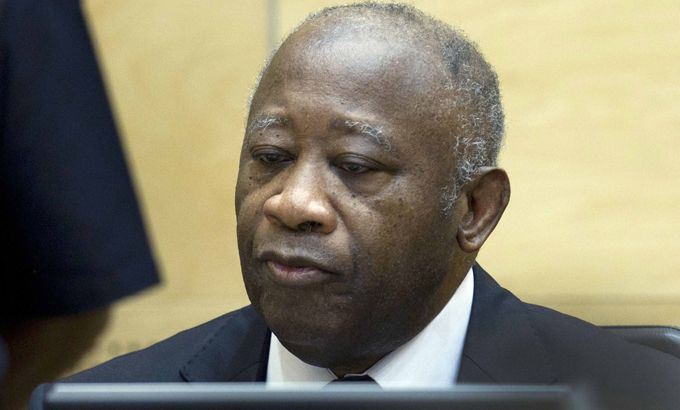Ivory Coast’s Gbagbo faces war crimes court
Former president appears in front of International Criminal Court on charges related to post-election violence.

Laurent Gbagbo, the former president of Ivory Coast, has faced International Criminal Court (ICC) judges for the first time after his transfer to The Netherlands from a northern Ivory Coast jail cell last week.
Gbagbo, 66, appeared before a pre-trial chamber on Monday to verify his identity and hear the charges against him, Al Jazeera’s Tim Friend reported from The Hague.
The hearing served primarily to establish Gbagbo’s identity, to make sure that he understands what he is being accused of and that he understands his rights.
“If I am being accused it means that there is evidence on the basis of which I am being accused … I would like to see what that evidence is, I will challenge that evidence, and then you hand down your judgement,” Gbagbo, the first former president to appear before the court, said at Monday’s proceedings.
The former president said that he had been “deceived” in being brought to The Hague, and also described the events leading up to his arrest. According to him, his palace was surrounded by 50 tanks and “helicopters were dropping bombs” on the complex.
“I was arrested under French bombs,” said Gbagbo “It was the French army that did the job.”
Next hearing set
Judge Silvia Fernandez de Gurmendi said that Gbagbo must reappear before the court on June 18 for a hearing to confirm the charges against him.
Prosecutors will be tasked at that hearing of convincing judges that there is enough evidence to try Gbagbo for his alleged crimes.
| Luis Moreno-Ocampo, ICC chief prosecutor, has defended the credibility of the case [Al Jazeera] |
“The International Criminal Court is helping [the Ivory Coast] to identify if Mr Gbagbo is responsible for crimes or not, to identify what happened there. Establishing the law to help them to live together,” Luis Moreno-Ocampo, the court’s chief prosecutor, told Al Jazeera.
“This court is impartial, it has nothing to do with the parties involved in the conflict and its changing completely history in the world. In the past, heads of state were able to commit crimes, and nothing happened to them. Eventually, they go to golden exile. Now, Mr Gbagbo, a former head of state, is facing justice. That is a new time we are living: no more crimes, no more atrocities.”
Gbagbo faces four counts of crimes against humanity, including murder and rape, over violence after last year’s November 28 polls.
The election that spiralled into conflict in 2010 was won by rival Alassane Ouattara, but Gbagbo refused to hand over power. His insistence that he was the winner triggered a months-long civil conflict that left at least 3,000 people dead and more than a million displaced.
Gbagbo was removed from power in April with the help of French and United Nations troops that fought alongside Ouattara’s forces.
Ouattara’s fighters
Gbagbo’s extradition to the ICC has prompted fears of fresh unrest in the West African nation, with supporters of his Ivorian Popular Front (FPI) party last week calling on supporters to “regroup for imminent action”.
|
“In all of our reports, we made it clear there were violations of human rights on both sides.” – Navi Pillay, UN human rights chief |
“Gbagbo’s transfer to The Hague gives us all the reason we need to stand up. The day will come,” Charles Ble Goude, a prominent pro-Gbagbo activist, told the pro-Gbagbo daily, Notre Voie.
However, Al Jazeera’s Nazanine Moshiri, reporting from Abidjan on Monday, said that “there is no sense that there [are] going to be protests” over Gbagbo’s appearance in court.
She explained that the live feed for Gbagbo’s appearance was not being shown on Ivory Coast television and that most of the leaders in his party had either fled the country or gone into hiding.
Some human rights groups have asked why fighters for Ouattara have not also been arrested, despite evidence that they too committed abuses.
“In all of our reports, we made it clear there were violations of human rights on both sides,” Navi Pillay, the UN high commissioner for human rights, said in Geneva.
“President Ouattara has consistently expressed his commitment to fight against impunity in a fair and balanced way by going after all the perpetrators, regardless of their status or political affiliation. So this is something we would be encouraging him to do.”
Moreno-Ocampo has said that investigations into the case are continuing, and that they will include supporters of President Ouattara.